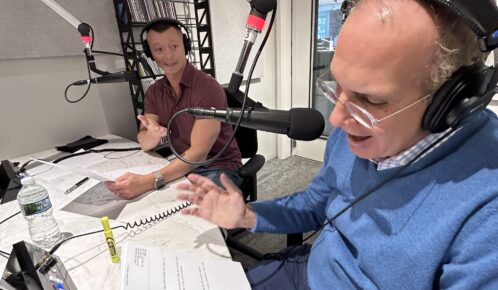After receiving a settlement after an accident, you may wonder, “can Medicaid take a personal injury settlement to cover medical bills?” If you sustain injuries and other damages in a personal injury case, a portion of your settlement may need to cover Medicaid and other types of healthcare that helped treat your injuries.
Table of Contents

What Does a Personal Injury Settlement Cover?
In the event of an accident in which someone else’s negligence or another type of improper conduct causes damages, injury victims may be able to file a personal injury claim or lawsuit against the liable party.
In a personal injury case, you seek compensation for the various damages you sustained. The personal injury settlement would cover these damages. A settlement may come in the form of a personal injury structured settlement or a lump sum award, in which both parties agree to the settlement amount. In some cases, a personal injury lawsuit may go to trial, where a judge and jury must decide on the settlement amount.
There are three main types of damages that a personal injury settlement may cover. These include economic, non-economic, and punitive damages.
Economic Damages
Economic damages, also called special damages, are those that apply to specific financial losses that injury victims experience.
Some examples of economic damages in personal injury cases include:
- Medical bills
- Lost income resulting from recovery or disability
- Physical therapy and rehabilitation
- Ongoing care
- Medication
Non-Economic Damages
Also known as general damages, non-economic damages are somewhat more difficult to calculate than economic damages. They’re more subjective and pertain to victims’ personal suffering as a result of their injuries and trauma.
For example, victims of car accidents may suffer from physical pain along with psychological distress that impacts their lives following the initial accident. Some may also suffer from disfigurement and a loss of enjoyment of life because of their injuries.
Personal injury settlements would help cover this pain and suffering in addition to economic damages. Attorneys and courts use certain methods to calculate compensation for non-economic damages.
Punitive Damages
If a defendant in a personal injury case exhibited unusually egregious behavior that caused harm to the plaintiff, the court may award punitive damages. Punitive damages are often more challenging to prove and recover compensation for, but the main goal behind these damages is to set an example of the defendant. Courts tend to award punitive damages with the intent to prevent similar levels of negligence or maliciousness from taking place again.
If you’re not sure what kinds of damages are involved in your case, an experienced personal injury lawyer may be able to help you calculate all relevant damages.
Can Medicaid Take a Personal Injury Settlement?
If you get involved in any type of accident that leads to a personal injury case, your Medicaid policy or another type of health insurance policy should help cover your healthcare. If you receive a settlement through this personal injury case, part of it may help repay Medicaid for your medical care.
Specifically, Medicaid and other healthcare providers may implement a medical lien to secure payment in a personal injury case.
What Is a Medical Lien?
A medical lien, also known as a healthcare or hospital lien, is a type of agreement that patients and healthcare providers make. In this agreement, patients will agree to pay later for medical care through a personal injury settlement.
Once the personal injury case ends, the healthcare provider can put the lien into action and seek the payment the patient agreed to cover using a portion of the settlement.
A medical lien is a viable option for patients when there is no other way to pay for care, which is often the case with patients who rely on personal injury settlements to cover medical expenses.
Personal Injury Settlements and Healthcare Liens
Depending on your circumstances, you may have two or more medical liens in place, requiring you to pay a portion of your personal injury settlement toward them once your case concludes. These liens may apply to Medicaid coverage along with specific medical professionals, hospitals, physical therapists, and other healthcare facilities.
However, there are limitations that help prevent personal injury victims from paying more than they have to upon receiving a settlement. For example, in Illinois, the amount of coverage recovered in a personal injury settlement must not exceed 40% of the total settlement amount.
Medicaid is also only able to recover reimbursement for the portion of a personal injury settlement covering medical expenses. This prevents the lien from requiring individuals to pay out part of their settlements pertaining to other economic and non-economic damages.
Medical liens are negotiable both prior to and after signing an agreement. Although medical professionals and institutions may not want to negotiate a lien because of the legal hassles involved in changing the lien’s terms, you still have the ability to negotiate new terms as needed. If you need some assistance with negotiating liens, a Schaumburg personal injury attorney may be able to help with this.
What Happens if You Lose a Personal Injury Case?
Once you agree to a medical lien, you will still need to cover the debt owed to healthcare providers even if you lose a personal injury case. If you are unable to reimburse Medicaid or other providers for medical care, you may still have some options available to help with payment.
Hiring a Personal Injury Attorney to Help Reduce Liens
While medical liens have certain limitations, they can still account for a large portion of your personal injury settlement. You may be able to negotiate a reduced lien. However, it is often challenging to reduce an existing lien, particularly when healthcare providers are hesitant to go through the negotiation process.
This is why it’s important to know when to hire a personal injury lawyer. With the help of an experienced attorney, you may be able to negotiate more favorable terms, depending on the nature of your case and medical care.
A personal injury attorney who has handled cases involving medical liens may be able to identify certain opportunities to have the lien reduced and maximize the amount of compensation you receive.
The Other Benefits of Hiring a Lawyer
In addition to helping negotiate liens, personal injury attorneys may be able to help you recover full compensation in other ways.
A personal injury lawyer with experience handling cases involving liens may be able to help you identify all liable parties involved in your case. Your attorney may then help collect and organize any evidence that supports your case, increasing your chances of succeeding and ultimately being able to repay Medicaid and other healthcare providers through your settlement.
In addition, a personal injury attorney will help negotiate with defendants and their insurance companies, which is often challenging and can lead to a compromised case with the wrong statement or acceptance of the first offer an insurer makes.
Although your attorney would work to reach a settlement out of court, this isn’t always achievable. Some cases may wind up going to court if the plaintiff and defendant can’t agree on a settlement amount, in which case it’s important to have an attorney with trial experience. A trial lawyer would help present your case and give you the support you need to reach a favorable outcome in a court setting.
These potential benefits make working with an attorney the right move when starting a personal injury case.
Paying for Medical Care with a Personal Injury Settlement
Victims of personal injury accidents often struggle to pay for medical expenses on their own. Medical bills can quickly pile up and put pressure on victims and their families when seeking treatment.
Medicaid and other providers may be able to put a lien in place to recover a portion of a person’s settlement to help cover medical care. However, there are specific limits as to the amount of compensation they can receive from a settlement, and it’s essential to understand these limits. An attorney may be able to help negotiate a reduced healthcare lien and determine precisely how much you owe Medicaid, Medicare, and other healthcare providers and insurers.



